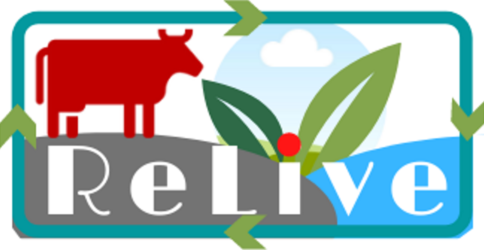WP 1
D1.2: Report on harmonized data collection from I) pilot farms and living labs and ii) using ESA Copernicus Sentinel 1 radar data and Sentinel-2 optical data for evaluating their field conditions, iii) Listing of smart farming and national reporting systems and identification of the reporting systems used by three pilot circular farms in each country as well as the use of data cloud-based APIs, and iv) evaluation of how NDVI and other remote sensing data can be utilized. (Month: 24)
D1.3: Progress will be reported on a) the development of an open-source data repository with a link to both project website and the Avoin server for storing harmonized input data from circular farms, living lab observation networks and remote sensing, and b) output data from different models (WP5) and response functions, RF1 (diet-CH4/diet-C/N), RF2 (Field emission-C sequestration-management), RF3 (diet- manure housing/amendment management). Ideally, they can be swapped around according to purpose e.g. define field management (RF2) -> estimate CH4 and C/N excretion (RF1) -> GHG-manure (RF3) -> which returns to the field (RF2). (Month: 24)
WP 2
D2.1: Report (opinion paper) on potential changes in the farm GHG (CH4) balance through livestock management and the adoption of land use and system changes (i.e., new forages, forages in rich in sugar and tannins), feed supplements (seaweed) and the share of grass-and croplands (including crop grazing) in integrated crop-livestock systems. (Month 30)
D2.2: Report on the benefits, synergies and trade-offs that grazing crop-residues, which is related to the outcomes of task 2.3 ((Month 30)
D2.3: Report on the impact of (re)integration of livestock and circularity on farm (national) GHG emissions with different system configurations (land use and land management) and modified dietary, manure management and field applications (diet->manure-field, WP3) and 3.1 system analyses. (Month 30)
WP 3
D3.1: Analysis of the effects of land use and system changes (I.e., livestock diet) on manure management for the whole farm system. (Month 30)
D3.2: Literature analyses on i) the environmental impacts of different management systems with/without biogas generation, ii) an evaluation of compromises between amendment usage when replacing synthetic fertilizers and, iii) the use of manures for biochar. (Month 24)
WP 4
D4.1: Concise handbook on the use of CSA practices for livestock farms: Production of a book that describes farming management plans for the mitigation and adaptation to climate change for different livestock farm types based on data collected from farmers and appropriate calculations. (Month18)
D4.2: Report on Mitigation Potential of CSA for livestock farms across Europe: An assessment of the potential of different soils for CH4 uptake and C sequestration, based on laboratory incubations, with the identification of soil parameters and microbiology as major drivers. (Month 30)
D4.3: Peer reviewed publication assessing the impact of non-CO2 GHGs on carbon neutrality in Climate Smart Livestock farm vs. conventional ones: Assessment of the mitigation potential of afforestation based on field studies of GHG (CO2, N2O and CH4) fluxes in different soils and long-term C flux data. (Month 36)
WP 5
D5.1: Modified and updated version of the Holos model (12) and CFT version. (Month 15)
D5.2: Report on first set of model results and synthesis, and submission of a peer-revised article (Month 24)
D5.3: Decision-tree for recommendations of alternative land use and management choices in achieving resilient farming and a peer-reviewed paper (Month 34).
D5.4: Report on testing model simulations using farmers databases and recommendations for climateresilient farming and management approaches for implementation (Month 36).
WP 6
D6.1 Advisory report on the optimal validation tools at farm level in a European context (Month 24)
D6.2 Data sets for model evaluation in WP5 delivered to WP1 (Month 24)
D6.3 Digital tool/module for existing tool with questionnaire guiding actors to the most suitable set of data collection and models for managing and evaluating farm GHG management and Report on methodologies for evaluating small-scale alternative farming schemes (Month 36)
WP 7
D7.1: A public Gold Standard methodology paper: A public Gold Standard Concept note and Methodology review process completed by a consulting company contracted by Gold Standard.
(Month 18)
D7.2: Production of an anonymous report with practical guidance on pilot farms in each country with the identification of the most impactful and cost-efficient circular activities that would suit their operations.
Development of data visualization on environmental impacts at farm level, as well as the establishment of API and QR connections for the data and visualization. (Month 18)
D7.3: A customer survey conducted assessing whether are customers are willing to pay more for food products that include impact data, and the capability of farmers to negotiate a fair share of any extra costs to the consumer. (Month 24)
D7.4: Quantification of the impacts of system and management changes on the farm profitability from the various changes developed through the project (Month 36)
WP 8
D8.1: Minutes and recommendations of regular project meetings as well as steering committee meeting submitted on a regular basis (Month 36)
D8.2: Workshop minutes/recommendations submitted, and website launched (Month 6)
D8.3: Conferences/workshops/seminars proceedings and 15 peer-review papers published, and 2 annual reports submitted and final workshop proceedings/recommendations and report submitted. (Month: 36)
